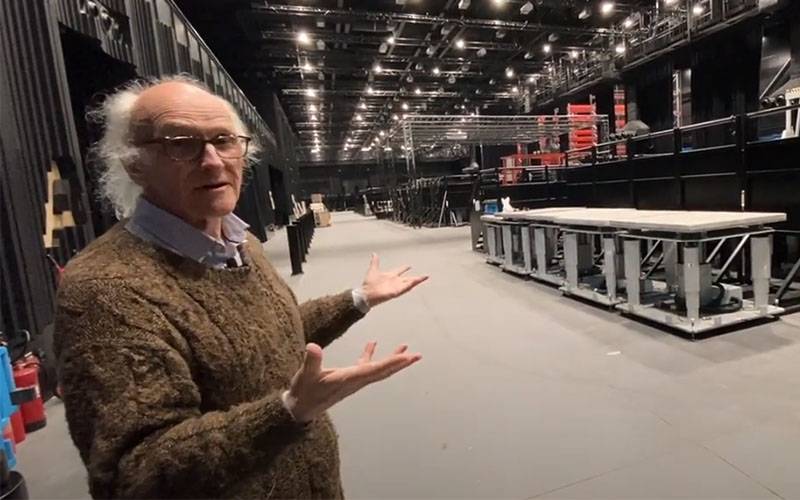This month we speak to Prof Nick Tyler to find out how cross-disciplinary collaborations have shaped his work.
 What is your role and what does it involve?
What is your role and what does it involve?

I am the Chadwick Professor of Civil Engineering, the Director of the Centre for Transport Studies, and the creator and director of the new PEARL (Person-Activity-Environment Research Laboratory) facility. The role involves inspiring researchers, students, professionals and the general public to understand how people interact with the environments around them.
How are you improving the health of the public?
I guess the main project right now is PEARL. PEARL (Person-Environment-Activity Research Laboratory) is a unique facility to explore the ways in which people interact with their environment. It is a massive space in which we can create life-sized environments under controlled conditions, so that we can examine how people interact with their environments at a variety of scales - spatially, from neurons to city blocks, and temporally from nanoseconds to decades.
This comprehensive approach is based on the idea that everything we know about the world comes via our sensory systems. People tend to treat their senses independently, but the human brain-body considers them all together to create the perceptions of the world that we have, that then inform the decisions we make. This brings human beings' physical, neurological, psychological, physiological, responses into play with the design of environments so that people can live a healthier life with better wellbeing, with an enhanced sense of sociality. PEARL allows us to control and measure all of these so that we can learn about the interactions that are crucial to deliver these outcomes.
The project right now is to make PEARL work, and to enable others from right across the university to make use of it to help their research.
What do you find most interesting or enjoyable about your work?
People. In PEARL we have, in addition to the laboratory itself, created a whole new approach to how we interact with each other in research and education. This has affected the working systems and hierarchies at PEARL, the design of the building itself and the relationships between all the people in the facility, whatever their reason for being there. It is going to be very exciting to see how 'we' engage in such a different approach to our work.
How have cross-disciplinary collaborations shaped your research?
We have transcended disciplines! Nobody has 'the answer' but we can work together to elaborate one. The model I use is that of a symphony orchestra. You cannot play a symphony with only one instrument. Every instrument has its moments where it is the most 'important' in the band - and every instrument has the moments when it is the least important. The key that is learnt by orchestral musicians is how to know when each moment applies, and how the other instruments relate to them at that point. Working together with a visionary (who might, or might not, be the conductor) to formulate an agreed idea of the outcome, they collaborate to produce a performance. The performance is ephemeral - as soon as it is played it is gone - and the creative process grows from that point on, to set about creating the next one. That is exactly how I think research should work. You have 'disciplines' - the instruments of the orchestra - with their highly skilled proponents, you have the process of creating the ideas and perfecting them - the rehearsals and individual practice - and you have the fusion of the whole team to create the unique result - the performance ... and then you start to create again.
What advice would you offer to others interested in developing cross-disciplinary research?
You need to be highly creative and good at what you do. Have the humility to know that nobody has the answer, and nobody will achieve it alone, but together, if people listen to each other, learn to know when others have the priority, and come to understand each other, that creative flow will happen.
So my advice is: be creative, be good at what you do, be humble, be a listener, be a learner, and seek to understand - then collaboration will work.
What's next on the research horizon for you?
Time. I really want to understand time as it works in multiple scales, around, with, and for, us, how it stretches and bends - and is not the rigid, inflexible, hegemonic mechanical kind of time that we are forced to work to at the moment.
If you could make one change in the world today, what would it be?
Design the world to enable people to function at their natural pace.
 Close
Close

